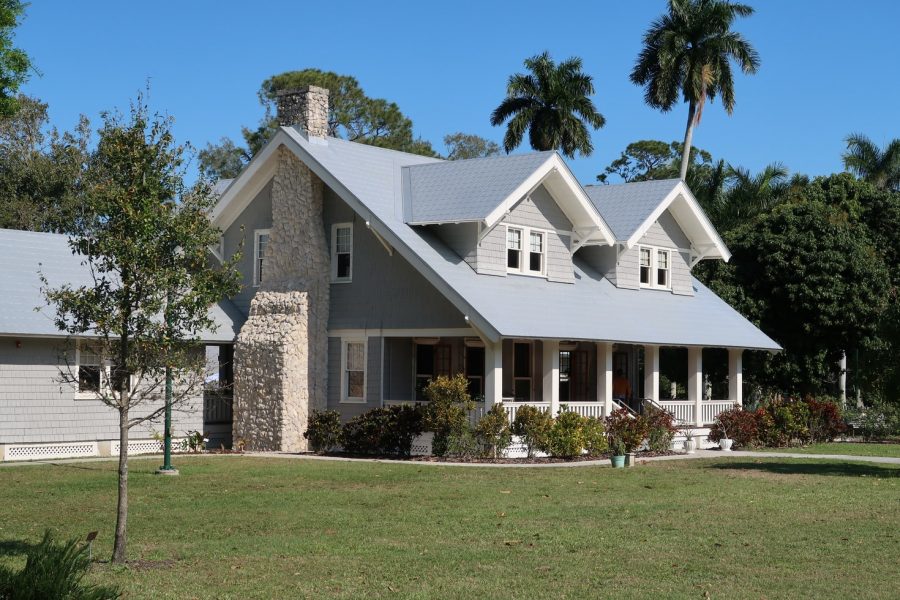If you have recently started to dread your monthly utility bills, then it might be time to make some changes around your home. Investing in a few key upgrades and carrying out a handful of simple projects could have a huge impact on your home’s efficiency as well as your finances.
Replace Your HVAC System
In the average home, the heating and cooling system accounts for nearly 47 percent of all energy consumption, and that means your aging HVAC system could be wasting hundreds of dollars’ worth of energy every year. If your HVAC system is more than a decade old, then you should consider upgrading to a high-efficiency unit or ductless mini-split system. Both of those options could end up paying for themselves within years and make your home much more comfortable.
Smart Thermostat
A smart thermostat is a great way to upgrade your home’s energy efficiency. Smart thermostats can learn your heating and cooling habits and make adjustments accordingly. They can also be controlled remotely, which means you can save energy even when you’re not home. Many smart thermostats also come with features like vacation mode, which can save you even more money when you’re away from home for extended periods of time.
Take a Fresh Look at Your Insulation
Even if you invest in an advanced HVAC system, keeping your home at a comfortable temperature is going to be nearly impossible if you have damaged or aging insulation. Over time, insulation can become compressed and that is going to allow quite a bit of heat transfer to take place in your attic and through the roof. Those who want the best insulation on the market should take a closer look at blow-in cellulose that will settle in all of the nooks and crannies in an attic and form a very thick barrier.
Unplug Unused Devices
While it might seem like a hassle to go through your home and unplug every device you aren’t using, that task could greatly impact your energy bills. Many devices continue to draw power even when they aren’t actively being used, and that excess energy can add up over time. Some of the worst offenders include stereos, laptops, coffee makers, and old chargers.
Replace Old Lightbulbs
There are a number of ways to make your home more energy efficient, but one of the simplest is to replace your old lightbulbs with new, more efficient ones. LED bulbs use far less energy than traditional incandescent bulbs, and they last much longer, too. Making the switch to LEDs can help you save money on your energy bills and reduce your impact on the environment.
Utilize Solar Panels and Batteries
If you want to make your house as energy efficient as possible, then you should take a closer look at solar technology. They can be used to power your home in a variety of ways, including providing electricity, heating water, and even generating income through the sale of solar credits. Solar panels are easy to install and maintain, and they can provide significant savings on your energy bills. In addition to using solar panels, you can also invest in cutting-edge solar batteries that allow you to store energy for lengthy periods of time. A company like Harmon Solar should be able to set up a battery array within just a few hours, and you are going to notice the benefits almost immediately.
Upgrade Your Refrigerator
If you have an older refrigerator, it might be time to upgrade to a newer, more energy-efficient model. Newer models use less electricity, which can save you money on your monthly utility bills. If you decide to upgrade your refrigerator, be sure to recycle your old one properly. Many appliance stores offer recycling programs for old refrigerators.
Seal Gaps and Windows
One of the most common sources of energy loss in any home is unsealed gaps and windows. If you can feel a draft coming into your home, then chances are the heat is escaping as well. Sealing those gaps with caulk or weatherstripping is going to be an easy and affordable way to make your home more comfortable while also reducing your energy bills.
Turn Off Unnecessary Water Heater
One way to make your home more energy efficient is to turn off your water heater when you don’t need it. Hot water tanks can account for up to 15% of your home’s energy usage, so turning it off when you’re not using it can save you a lot of money on your energy bills. Many newer models come with a vacation mode that makes it easy to turn off the water heater when you’re away from home for extended periods of time. If you don’t have a vacation mode, simply turning the thermostat down to its lowest setting will do the trick.
Get an Energy Audit of Your Home
If you want to find out exactly where your home is wasting energy, the best thing to do is to get an energy audit. An energy auditor will come to your home and assess where heat is escaping and recommend the best ways to insulate your home. You can also do a simple energy audit yourself with this easy how-to guide from the U.S. Department of Energy. Doing an energy audit is a great way to save money on your monthly utility bills, and it can also help make your home more comfortable.
Making your home more efficient doesn’t always have to be a time-consuming or confusing process that leaves you frustrated. For many people, a few basic upgrades will have a huge impact on their energy consumption and monthly electric bills.

